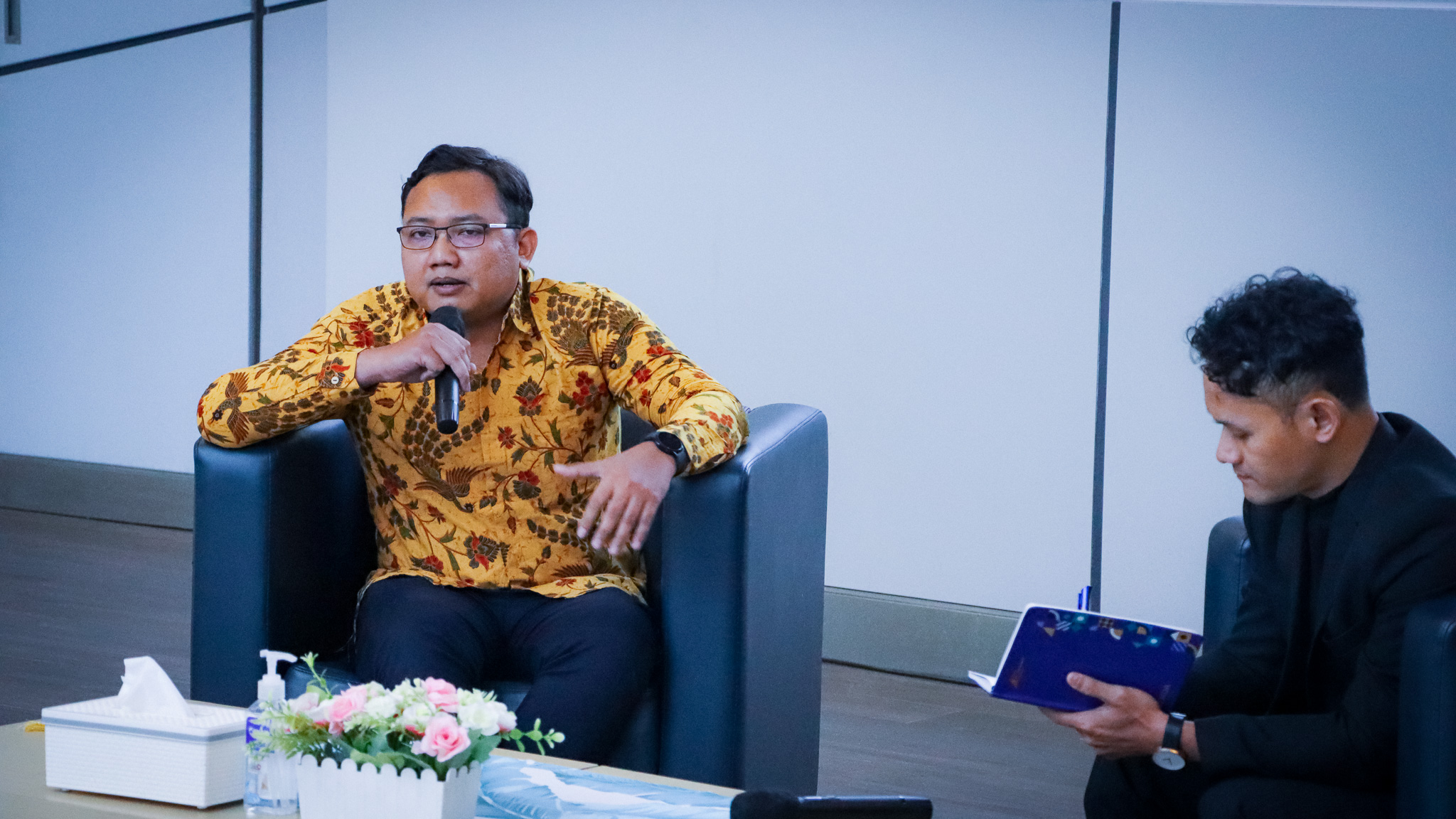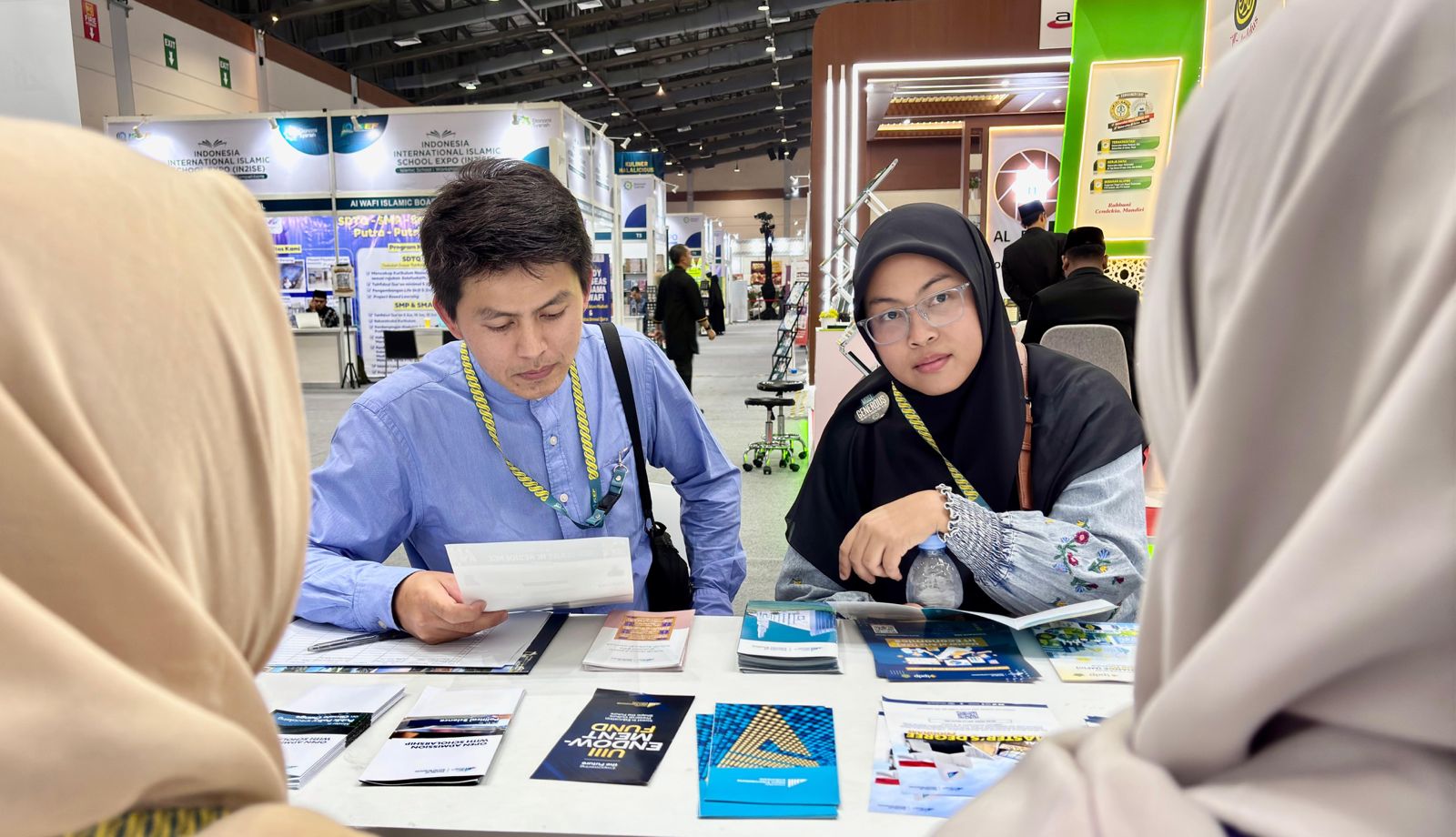Indonesia's Net-Zero Target: Progress and the Path Ahead
March 30, 2023Contributor: Muhammad Ismail Sunni | Editor: Supriyono

Indonesia, with its vast coastline and numerous islands, has the potential to develop and switch to renewable energy sources such as solar, onshore wind, offshore wind, and hydro.
However, as the world strives for economic recovery and sustainable development, it is crucial for Indonesia to consider the potential impacts of the renewable energy industry on its economy.
Not only does it concern the ultimate environmental purpose of Indonesia in achieving zero emissions by 2030, but it is also to boost the transition to greener technology to be efficiently implemented to go against climate change.
Given such a thought-provoking phenomenon, on March 29, 2023, the Faculty of Economics and Business (FEB) at the Universitas Islam Internasional Indonesia (UIII) held a session with Mr. Agil Yudawan, a business development manager at Technip Energies, to address issues in Indonesia’s renewable energy industry.
During the event, Mr. Yudawan highlighted that decarbonization projects, while being said to take a long process to fruit, have been on their way to implementation in Indonesia. "Based on our study, Indonesia, in its stage of preparation and research, has 16 CCS projects which would be targeted onstream by roughly before 2030," he explained.
Here, CCS stands for carbon capture and storage, which is a means of lowering carbon emissions, essential in combating global warming.
Despite realizing that Paris Agreement is nothing new, Mr. Yudawan added that the participation and engagement of private sectors in Indonesia remain low, indicating a need to increase their level of awareness and acknowledgment to achieve net-zero emissions. Still, only 21% of major companies thus far have set a net-zero target.
In this regard, what drives these private sectors to target net-zero emissions—apart from global trends toward net-zero commitments—are potential long-term benefits, demands of customers, shareholders and the public, as well as financial risks and government regulations.
In terms of profit, Mr. Yudawan pointed out that know-how of profit maximization ought to meet at least three elements: offering differentiation, processes and product novelty, and emerging business models.
"Currently, the most pressing issue on our government side is the supply of equipment technology. While it is wise to support scaling up the breakthrough technologies from relevant R&D, it is imperative to incubate technologies by collaborating with related institutions", he further explained.
Thus in the future, it is more reassuring to not rely on only one renewable energy source but combine more than one to streamline the decarbonization process to mitigate the devastating impacts of climate change, reduce greenhouse gas emissions, and transition to a sustainable energy system.
The rapid and effective implementation of decarbonization strategies is necessary to avoid the worst effects of climate change, preserve ecological systems, and ensure a liveable planet for future generations.
- Prof. Dr. Nasaruddin Umar: A Distinguished Profile in Religious Leadership
- Is Indonesia’s Middle Class Collapsing?
- Pedaling to Work, Dr. Lukman’s Message on ‘World Sustainable Transport Day’
- Welcoming the Pilgrim of Hope: Indonesian Muslim Leaders Embrace Pope Francis
- Sheikh Muhammad adh-Dhuwaini: A Recognized Authority in Sharia and Law
- Qurban and Grassroots Innovations Across Indonesia
- Indonesia's Green Qurban Movement
- UIII Productivity Ratio 2023
- Unsung Heroes in Global Trade: Celebrating International Customs Day 2024
- Nurturing Global Islamic Scholarship: UIII's Impact through Four Peer-Reviewed Journals Dedicated to the Muslim World


